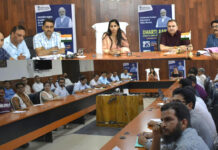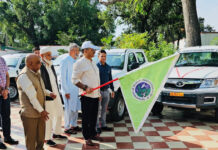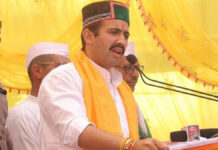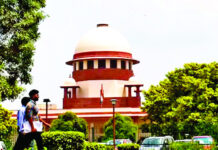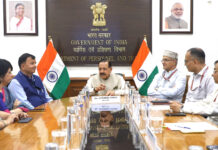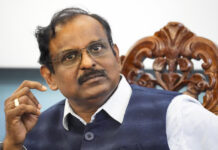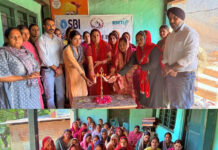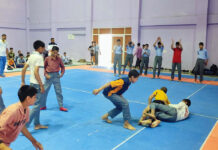
NEW DELHI, Jan 5
Dismissing Congress leader Jairam Ramesh’s concern over the voter verifiable paper audit trail (VVPAT), the Election Commission (EC) on Friday reiterated its full faith in the use of the electronic voting machine (EVM) in elections.
In his December 30 letter to the EC, Ramesh, who is the Congress general secretary in-charge of communications, had sought an appointment with the poll panel for the leaders of the Indian National Developmental Inclusive Alliance (INDIA) to put forward their point of view on the VVPAT. In its reply to Ramesh’s letter, the poll panel categorically said it has no new assertions or reasonable and legitimate doubts which require further clarifications.
“The letter dated 30th December 2023, however, does not mention any specific issues on VVPAT. It is, once again, requested to refer to EVM resources, including further updated FAQs, which covers all possible aspects. The letter said to be in sequence of the earlier letters, has no new assertions or reasonable and legitimate doubts which requires further clarifications,” read the letter signed by Pramod Kumar Sharma, Principal Secretary, EC.
Referring to the August 9, 2023 memorandum submitted to the poll panel on the EVMs, Sharma said, “Memorandum dated 9th August, 2023 has already been duly replied on 23rd August. Further, para-wise reply to issues raised due to incorrect and inadequate appreciation of material available in the public domain in follow up letter dated 2nd October 2023 by Omar Hooda, in individual capacity, is duly replied to this letter covering all aspects of EVMs like non-tampering, non- hacking, micro controllers, end-to-end verifiability, legal provisions, counting, technical competency, manufacturing, source code, etc.”
The EC stated that material available in the public domain on EVMs, including the latest updated FAQs, adequately and comprehensively cover all reasonable and legitimate aspects of use of the voting machines in Indian elections. The principal secretary further said, “It is stated that current EVMs in use in Indian election are compliant to the extant legal framework created and strengthened by the successive Union Governments of the day and jurisprudence evolved over more that 40 years by the Constitutional Courts of India.
Anything beyond existing legal framework and established jurisprudence is beyond the singular domain of the Commission.”
Pointing out that various aspects of the VVPAT are sub-judice in the Supreme Court, Sharma said, “It is beyond any explanation that out of context references are being made to other countries and their constitutional courts about use of EVMs in elections. Based on the outcomes of the elections conducted using EVMs, legal framework, established jurisprudence, technical security and administrative safeguards the commission has full faith in use of EVMs in election.”
Notably, INDIA bloc parties, during its fourth meeting in the national capital last month, passed a resolution casting doubts on the EVMs. The resolution read: “INDIA parties reiterate that there are many doubts on the integrity of the functioning of the EVMs. These have been raised by many experts and professionals as well. Our suggestion is simple: Instead of the VVPAT slip falling in the box, it should be handed over to the voter who shall then place it in a separate ballot box after having verified his or her choice. 100 per cent counting of VVPAT slips should then be done. This will restore full confidence of the people in free and fair elections.”

